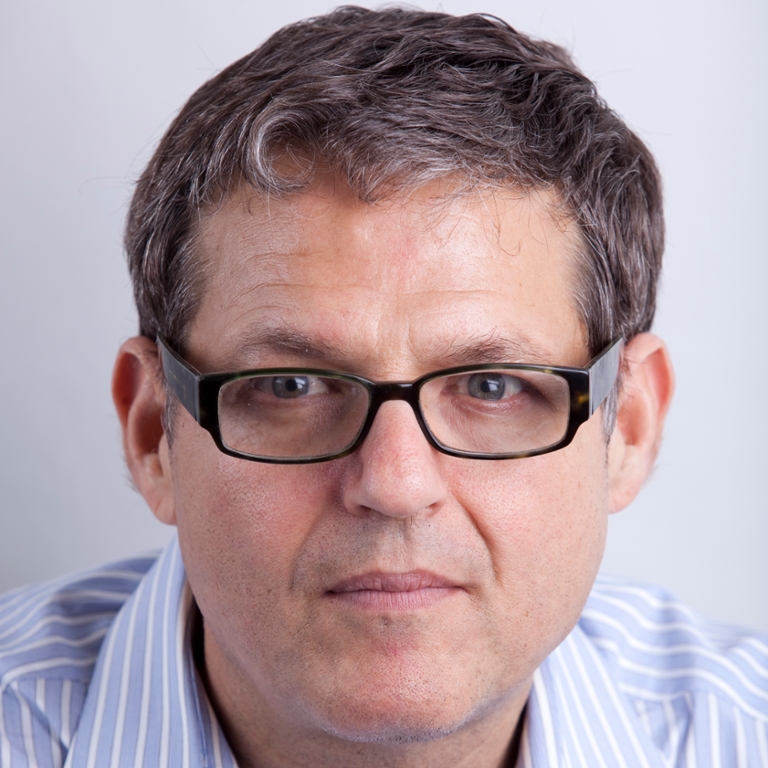- Ph.D., State University of New York at Buffalo, 1991
- M.A., State University of New York at Buffalo, 1989
- B.A., St. John’s College, Md., 1980

Joshua Kates
Professor, English

Professor, English
Joshua Kates did his graduate work at the University of Buffalo’s Program in Comparative Literature where he studied with Rodolphe Gasché and Henry Sussman. Kates’s first book Essential History: The Development of Deconstruction (SPEP 2005) offered a new understanding of Derrida’s signature notion, écriture, as well as of Derrida’s thought’s relation to Husserlian phenomenology. It was the sole book at the time originally written in English to give Husserl’s texts and Derrida’s the same close attention. Questions concerning the methodology of literary studies and the humanities had always furnished the background for Kates’s interests, and his second book Fielding Derrida: Philosophy, Literary Criticism, History, and the Work of Deconstruction (Fordham 2008) expanded his look at Derrida, by inquiring into Derrida’s significance in fields from literary studies to the history of mathematics. There, and subsequently, Kates questioned historicist frameworks such as the period (see his “Against the Period” and also his review of Mark Greif’s The Age of the Crisis of Man). In tandem with his work in the philosophy of history, Kates began investigating models of discourse that privilege the use of language over language as such. This work came to fruition in A New Philosophy of Discourse; Language Unbound (Bloomsbury 2020). Kates there charts an original concept of discourse, or talk!, that makes the case to both philosophical and literary readers that languages primarily speak or mean in use. Writing and speech are thus conceived entirely as events that take place within histories, contexts, and traditions themselves always in the making. A New Philosophy examines work by leading literary critics (Mary Poovey, Charles Altieri, Walter Michaels), literary texts by the novelist Stanley Elkin and the poet Charles Bernstein, and selected philosophical writings by Stanley Cavell, Hans-Georg Gadamer, Donald Davidson, and Martin Heidegger.
Kates’ teaching and writing on literature focuses on 20th- and 21st – century Anglophone texts, especially ones where issues pertaining to the modeling of language and history arise. Notable among these are works by William Faulkner, Thomas Pynchon, Sheila Heti, Ben Lerner, and Teju Cole. In addition to the links to his books below, many of Kates’ older essays may be found at his Academia.edu page, linked to here: https://indiana.academia.edu/JoshuaKates
“Deconstruction: ‘History, if there is history’” Routledge Companion to History and Theory, ed. C. M. van den Akker. London: Routledge (forthcoming 2021)
“The Silence of the Concepts (In After Finitude and Frege)” in Poetic Critique, ed. M. Chaouli et al. Berlin: Walter de Gruyter (2021): 105-124.
“Talk! As Historical Practice,” History and Theory 56 (December 2018): 145-167
“Husserl,” The Bloomsbury Handbook of Literary and Cultural Theory (London: Bloomsbury Academic, 2018): 520-21.
“Revisiting A Linguistic Turn: ‘Signature Event Context’… in, well, context,” Journal of the Philosophy of History 12.1 (2018): 117-41
“Deconstruction,” Oxford University Press Online Bibliographies (2017) view here
“Radical Empiricism Revisited,” Yearbook of Comparative Literature (Winter 2017): 235-85
“Neither a God nor ANT Can Save Us: Latour, Heidegger, Historicity, and Holism,” Paragraph 40.2 (July 2017): 153–73
“Semantics and Pragmatics and Husserl and Derrida,” Philosophy Compass 10.12 (December 2015): 828–840.
“Derrida, Foucault, le document et l'histoire : la période de la psychanalyse,” Le Tour Critique No 3 (2014): 59-71
“Remarks on Poutanien: An Alternative (to a) Response,” parrhesia 19 (2014): 148-161
“Document and Time,” History and Theory, 53.2 (May 2014): 155–174
“Historicity and Holism: The Example of Deleuze,” diacritics 41.1(2013):50-77
“Against the Period,” differences: A Journal of Feminist Cultural Studies, 23.2 (Summer 2012): 136-64
“Phenomenology’s Intersection with Literary Criticism,” in The Routledge Companion to Phenomenology, eds. S. Overgaard and S. Luft (New York: Routledge, 2011): 644-54
“Maurice Blanchot,” in The Blackwell Encyclopedia of Literary and Cultural Theory, vol. I, ed. Gregory Castle; general ed. Michael Ryan (Oxford: Blackwell, 2011): 89-94
“A Transcendental Sense of Death?: Derrida and the Philosophy of Language,” Modern Language Notes 120.5 (December 2005): 1009-1043